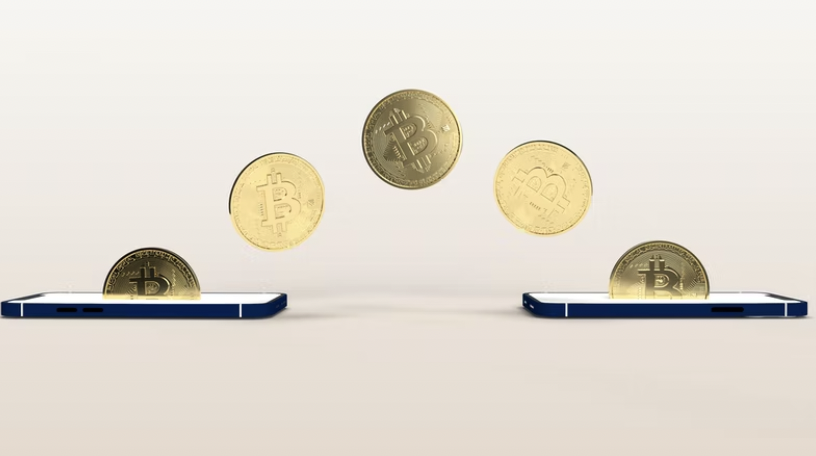How to navigate NFT ownership rights

Non-fungible tokens (NFTs) are a hot topic right now and offer businesses great opportunities to increase their engagement and attract new customers. Yet while the promises of NFTs in delivering new opportunities and monetization models for brands, artists and content creators are well known, there is a lot of confusion surrounding copyrights and IP. Brands must be mindful of protecting their works while also thinking about how IP issues can impact the customer experience.
In the real physical world, ownership is often synonymous with copyright, and companies have absolute control over their brands. Yet one of the issues with NFTs is the overlaps that occur as they continue to link more closely with real-time physical art and brands. After all, NFTs are just tokens representing an asset and separate from the physical item. However, this grey area raises the question of who holds the property rights. Unless an external agreement is made between the buyer and artist, the NFT copyrights still belong to the artist. But, when sums are sometimes in the thousands, this is unacceptable for many customers.
A technology for the future
NFTs are not a technology that will go away, with Mark Zuckerberg announcing earlier this year that NFTs will shortly be coming to Instagram. NFTs are not only coming to social media, but are also the key to the much-talked-about metaverse.
The metaverse is highly linked to NFTs because they are a way to own elements within the digital universe. This allows publishers to create the virtual property and involve users intrinsically within the virtual universe. Of course, one of the main hooks of the metaverse is its interoperability. The ability to translate content between multiple virtual worlds is highly dependent on NFTs. The two are indelibly entwined.
NFTs are also popular because they create the possibility for new monetization models. In the Play-to-Earn model, using NFTs, players can take part of in-game financial economies and get rewarded for the value they add.
Value drivers
NFTs need clear ownership and IP regulatory framework because their value is linked to their ownership history and scarcity. After all, having the original “Guernica” by Picasso is much more valuable than having a copy. In the same way, having an alien CryptoPunk places you in a very exclusive group of only nine possible owners.
Thanks to the blockchain, an NFT gives ownership of a certified digital piece. While others may have the same image in a PDF or JPEG format, you will be the only person who owns the certified piece. This is a key point. As blockchain locks ownership history and provenance within unalterable databases, its permanent trail will show you who owned the NFT previously. This provenance has always been important with collectibles. Whilst a normal Aston Martin DB5 will sell in the thousands, the one used in Goldfinger sold for $6.4 million. With NFTs, the history of ownership also contributes to value. An NFT that has been owned by Elon Musk, Gary Vee, or Eminem will likely see its value soar. It becomes a rubber stamp of credibility.
Concerns surrounding IP
As their value soars, there are growing concerns about the IP rules of NFTs. Just who holds the rights to an asset is often open to conjecture. For example, does the Spanish government own Guernica or does the buyer of the Guernica NFT own the rights to it? As mentioned before, unless an external agreement is made between the buyer and artist, generally the bundle of copyrights to an NFT still belongs to the artist. But as the regulatory framework is still evolving, it is unclear what the future holds.
To be added to the blockchain, NFTs must be signed by the uploader in the minting process. However, this process needs to be improved because it doesn’t completely stop fraud. Many artists have complained that NFTs of their work have been sold without their consent. One of the most infamous was when Star Wars stormtrooper helmets were decorated by artists Sir Anish Kapoor and David Bailey. Art curator Ben Moore T photographed and sold the helmets as NFTs without prior knowledge or agreement. Though legal action has been pursued, they remain out of pocket.
Unfortunately, scams around NFTs are rife. Chelsea art gallery owner Todd Kramer had several hundred thousand pounds worth of NFTs (primarily from the “Bored Apes” collection) stolen by scammers and listed on peer-to-peer trading market OpenSea.
A long road ahead
To ensure the long-term success of the NFT ecosystem, know your customer (KYC) practices will need to become better embedded. In the first instance, companies will need to identify their customers, the nature of their activity, and assess the risks to fight money laundering issues.
Just last year, a hacker created a piece of digital artwork and put it up for sale on an online marketplace claiming it was a limited-edition Banksy print. To help fool buyers, the creator hacked into Banksy’s website and posted a link to the NFT. It worked – the token sold for over $335 million. Although the hacker returned the funds right after, this goes to show the magnitude of the challenge ahead.
Because NFTs are relatively new, the legal framework is still being established. Sadly, many artists and content creators have seen their work sold as an NFT without consent. Although marketplaces like OpenSea want to help, there is still a long road ahead to ensure IP is respected in the NFT space and artists and consumers are protected.
